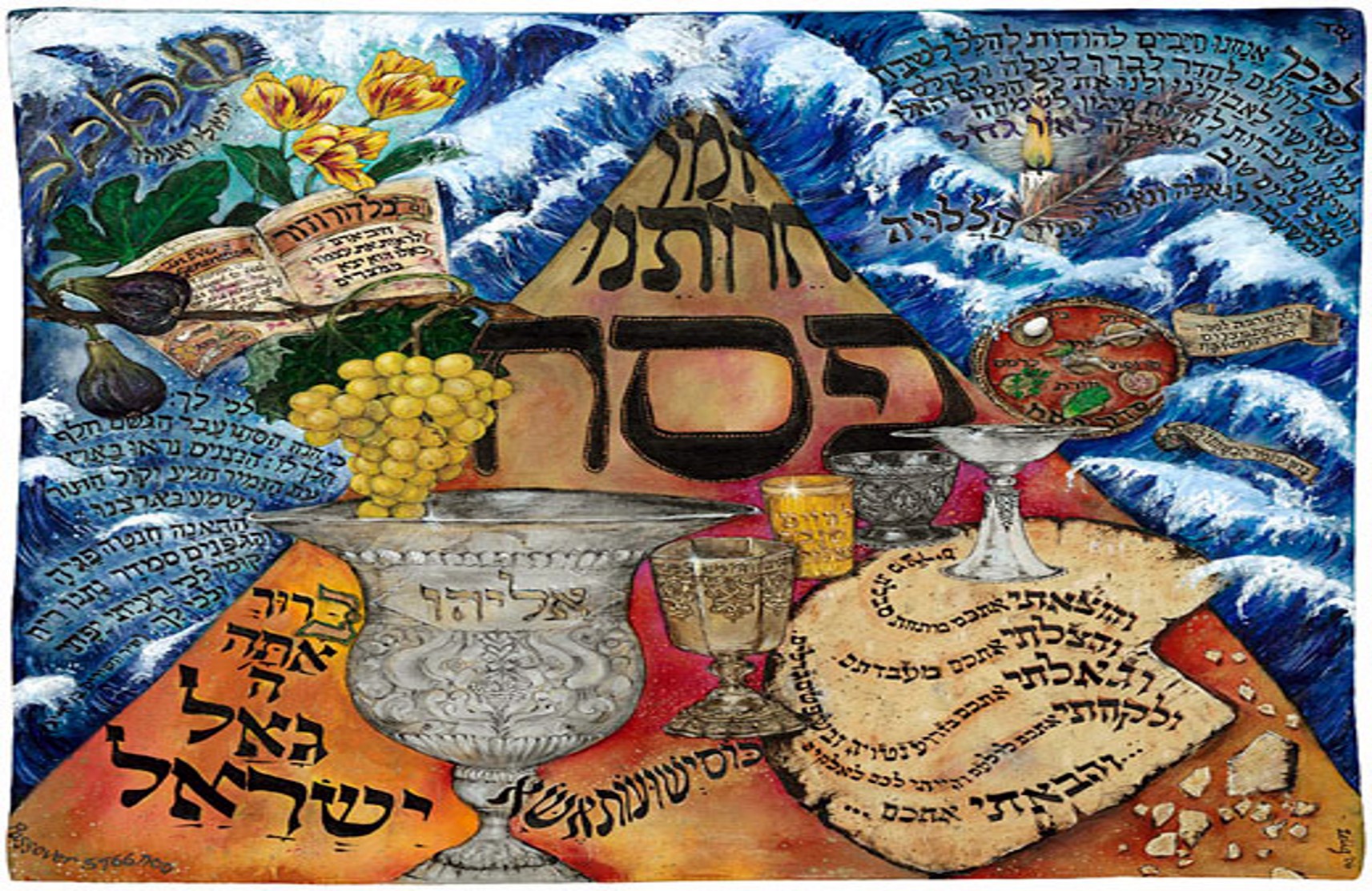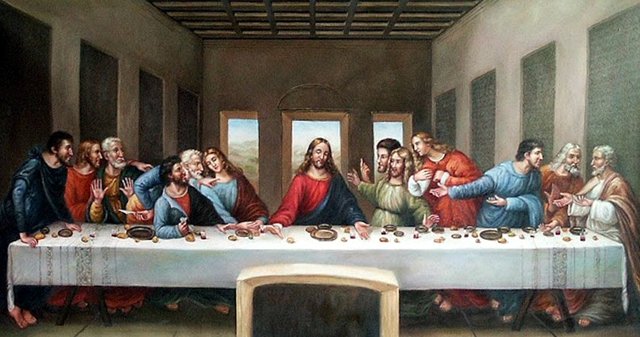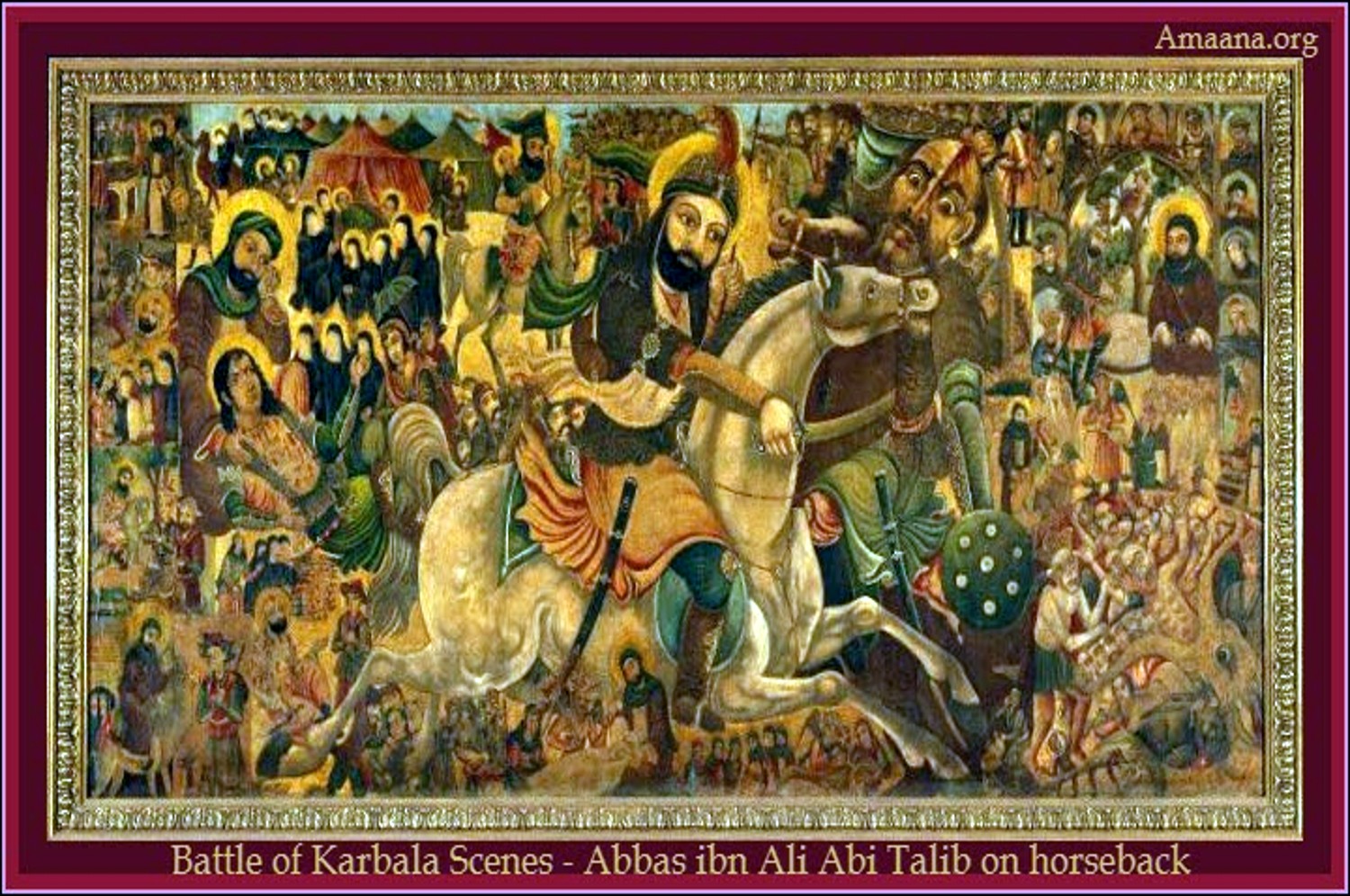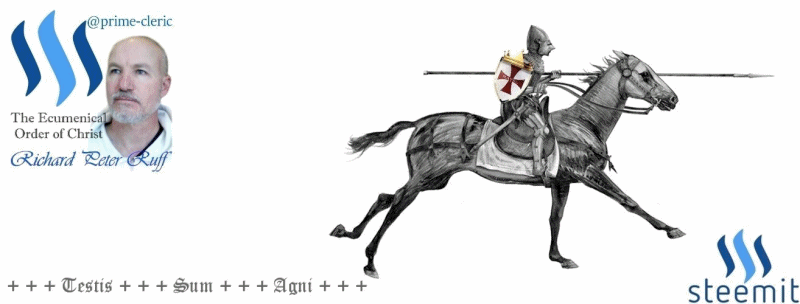Ash Wednesday Teachings
The Holy Days of Passover / Easter / Ashura, a collection of teachings:
Pesach Passover: Jewish Feast Day
In Exodus, God helped the Children of Israel escape slavery in Egypt by inflicting ten plagues upon the Egyptians before the Pharaoh would release his Israelite slaves; the tenth and worst of the plagues was the death of the Egyptian first-born. The Israelites were instructed to mark the doorposts of their homes with the blood of a spring lamb and, upon seeing this, the spirit of the Lord knew to pass over the first-borns in these homes, hence the name of the holiday. When the Pharaoh freed the Israelites, it is said that they left in such a hurry that they could not wait for bread dough to rise (leaven). In commemoration, for the duration of Passover no leavened bread is eaten. Called the feast of unleavened bread - hag hamatzot, the commandment to keep Passover is recorded in the Book of Leviticus:
"In the first month, on the fourteenth day of the month between the two evenings is the Lord's Passover. And on the fifteenth day of the same month is the feast of unleavened bread unto the Lord; seven days ye shall eat unleavened bread. In the first day ye shall have a holy convocation; ye shall do no manner of servile work. And ye shall bring an offering made by fire unto the Lord seven days; in the seventh day is a holy convocation; ye shall do no manner of servile work. "(Leviticus 23:5)
The biblical regulations for the observance of the festival require that all leavening be disposed of before the beginning of the 15th of Nisan. An unblemished lamb or goat is to be set apart on Nisan 10, and slaughtered on Nisan 14 at dusk. It is then to be eaten "that night", Nisan 14, roasted, without the removal of its internal organs with unleavened bread and bitter herbs. Nothing of the sacrifice on which the sun rises may be eaten, but must be burned. The sacrifices may only be performed in a specific place prescribed by God (for Judaism, Jerusalem, and for Samaritans, Mount Gerizim).
The biblical regulations pertaining to the original Passover also include how the meal is to be eaten:
"With your loins girded, your shoes on your feet, and your staff in your hand; and ye shall eat it in haste: it is the LORD's Passover" (Exodus 12:11).
The Biblical commandments concerning the Passover (and the Feast of Unleavened Bread) stress the importance of remembering:
Deuteronomy 16:12 "And thou shalt remember that thou wast a bondman in Egypt; and thou shalt observe and do these statutes."
Exodus 12:14 "And this day shall be unto you for a memorial, and ye shall keep it a feast to the lord; throughout your generations ye shall keep it a feast by an ordinance for ever."
Exodus 13:3 "Remember this day, in which you came out of Egypt, out of the house of bondage, for by strength the hand of the LORD brought you out from this place."

Easter: Christian Holy Days
Easter is a Christian festival and holiday celebrating the resurrection of Yeshua on the third day after his crucifixion at Calvary as described in the New Testament. Easter is the culmination of the Passion of Christ, preceded by Lent, a forty-day period of fasting, prayer, and penance. The last week of Lent is called Holy Week, and it contains the days of the Easter Triduum, including Maundy Thursday, commemorating the Last Supper and its preceding foot washing, as well as Good Friday, commemorating the crucifixion and death of Yeshua. Easter is followed by a fifty-day period called Eastertide or the Easter Season, ending with Pentecost Sunday.
The New Testament teaches that the resurrection of Yeshua, which Easter celebrates, is a foundation of the Christian faith. The resurrection established Yeshua as the powerful Son of God and is cited as proof that God will judge the world in righteousness. God has given Christians "a new birth into a living hope through the resurrection of Yeshua from the dead". Christians, through faith in the working of God are spiritually resurrected with Yeshua so that they may walk in a new way of life.
Easter is linked to the Passover and Exodus from Egypt recorded in the Old Testament through the Last Supper and crucifixion that preceded the resurrection. According to the New Testament, Yeshua gave the Passover meal a new meaning, as he prepared himself and his disciples for his death in the upper room during the Last Supper. He identified the matzah and cup of wine as his body soon to be sacrificed and his blood soon to be shed. Paul states "Get rid of the old yeast that you may be a new batch without yeast—as you really are. For Christ, our Passover lamb, has been sacrificed"; this refers to the Passover requirement to have no yeast in the house and to the allegory of Yeshua as the Paschal lamb.
In the Gospel of John, Yeshua, as the Passover lamb, was crucified at roughly the same time as the Passover lambs were being slain in the temple, on the afternoon of Nisan 14. The scriptural instructions specify that the lamb is to be slain "between the two evenings", that is, at twilight. By the Roman period, however, the sacrifices were performed in the mid-afternoon. Josephus, Jewish War 6.10.1/423 ("They sacrifice from the ninth to the eleventh hour"). Philo, Special Laws 2.27/145 ("Many myriads of victims from noon till eventide are offered by the whole people"). This interpretation, however, is inconsistent with the chronology in the Synoptic Gospels. It assumes that text literally translated "the preparation of the Passover" in John 19:14 refers to Nisan 14 (Preparation Day for the Passover) and not necessarily to Yom Shishi (Friday, Preparation Day for Sabbath) and that the priests' desire to be ritually pure in order to "eat the Passover" refers to eating the Passover lamb, not to the public offerings made during the days of Unleavened Bread.

Ashura: Islamic Holy Day
The Day of Ashura is on the 10th day of Muharram in the Islamic calendar and marks the climax of the Mourning of Muharram.
It is commemorated by Shi'a Muslims as a day of mourning for the martyrdom of Husain ibn Ali, the grandson of Muhammad at the Battle of Karbala on 10 Muharram in the year 61 AH . According to Sunni Muslim tradition, Ibn Abbas narrates that Muhammad came to Medina and saw the Jews fasting on the day of ‘Ashura’. He said, “What is this?” They said, “This is a good day, this is the day when Allah saved the Children of Israel from their enemy and Moses fasted on this day.” He said, “We are closer to Moses than you.” So he fasted on this day and told the people to fast.
Fasting the Day of Ashura' is not to mourn the martyrdom of imam Husain (may Allah be pleased with him). We deeply respect Imam Husain’s martyrdom, we honour his glorious act of sacrifice for the sake of Islam. He gave us a great example of truth, courage and piety. But we also feel pain and grief in our hearts for his assassination at the hand of some hypocrites who took Islam as a pretext to commit their crime. They fought and killed Allah’s Messenger’s beloved and blessed grandson and his family. This was the most heinous and shameful crime that was committed for the sake of political power. This tragic event took place in the year 61 AH or 680 CE. However, the tradition of Ashura' fasting is very ancient and it goes back to a long time before imam Husain.
It is reported in the Sahih of Imam Al-Bukhari and other authentic collections of hadith that the Prophet (peace and blessings be upon him) and his Companions used to fast on the 10th day of Muharram while they were in Mecca (before the hijrah).
It was a day on which people of Mecca used to change the covering (kiswah) of the Kaaba. Quraysh also used to fast on this day.
After the hijrah when the Prophet (peace and blessings be upon him) came to Medina, he found that the Jews of Medina also used to observe this day with fasting. The Prophet (peace and blessings be upon him) asked them the reason of their fasting on this day. They said, “This is a blessed day. On this day Allah saved the Children of Israel from their enemy (in Egypt) and so Prophet Musa fasted on this day giving thanks to Allah.” The Prophet (peace and blessings be upon him) said, “We have more claim to Musa than you.” He fasted on that day and commanded Muslims to fast on this day.
In another report it is mentioned that Jews of Medina used to hold a feast on this day. The Prophet (peace and blessings be upon him) told his Companions to fast instead.
Ashura fasting was obligatory in the beginning. In the second year of hijrah (624 CE) when Allah’s command came that Muslims should fast the whole month of Ramadan, the Prophet (peace and blessings be upon him) then sent someone to announce to people that fasting of Ashura' had become voluntary. This indicates that whosoever wishes to fast, may fast and whosoever does not want to fast, there will be no blame on him/her.
Imam at-Tirmidhi mentioned that ibn Abbas (may Allah be pleased with them both) used to say that we should fast on two days: the 9th and 10th of Muharram to distinguish ourselves from the Jewish community.
Ibn Abbas also quoted the Prophet (peace and blessings be upon him) as saying, “If I live next year, I shall also fast on the 9th day.”
There is a great reward in fasting the day of Ashura'. There are many hadiths that mention its blessings and virtues. It is good to fast on this day, although it is not obligatory.

Join up at Steemdunk for Auto-Voting and Curation: steemdunk -
More End Times Information:
https://armageddonbroadcastnetwork.tv/
http://torah-codes.net/
http://www.ra-el.org/


Hello, you received an upvote from @steemdunk thanks to @prime-cleric! Steem Dunk is an automated curation platform that is easy to use and built for the community. Join us at https://steemdunk.xyz
It's really a best post for knowing many things. Thanks for sharing..
Another very great post sir! @prime-cleric
Wow... What an inspiring and motivational article.... God bless you @prime-cleric for this awesome article ....kudos keep it up...
A lot of this is actually new to me. It's very interesting :)
I was unaware of some of the connections, very interesting.
Wonderful insight, @prime-cleric!!
wow, I love the history lesson
Awesone post
Learning many things